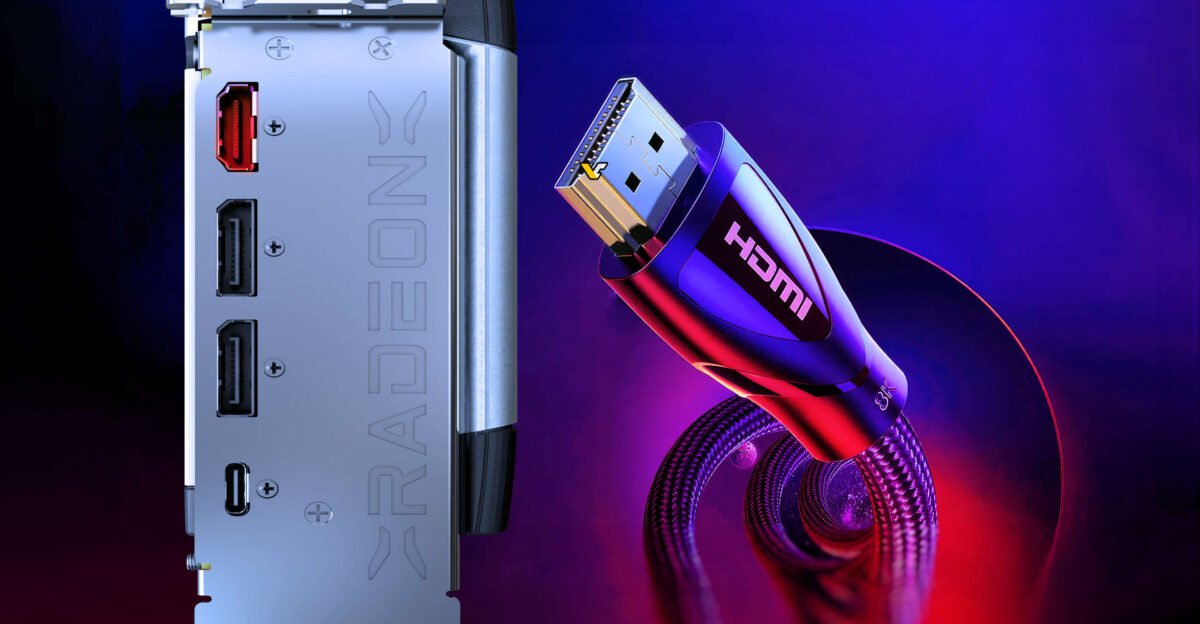The HDMI Forum, which controls the HDMI standard, has recently rejected AMD’s proposal to create an open-source HDMI 2.1 driver. This decision means that Linux users will not be able to use the highest-resolution images at the fastest frame rates over an HDMI connection for the foreseeable future. The HDMI Forum’s decision comes after AMD engineer Alex Deucher, who has been working on the company’s open-source offerings, reported that the proposal was rejected.
Deucher had been working with AMD’s legal team to sort out what they could deliver while still complying with their obligations to the HDMI Forum. However, after legal review and negotiations with the HDMI Forum, the decision was ultimately in the hands of the Forum, which rejected the proposal.
This outcome leaves DisplayPort as the likely best option for Linux users needing the best possible output. It also suggests that AMD may have to decide whether to implement newer HDMI support inside closed-source Linux drivers or simply point its most demanding customers to other options
Any Linux enthusiast aiming to transmit ultra-high-definition images to a display with lightning-fast frame rates is facing a disappointing roadblock—at least for now—particularly concerning HDMI connections.
Reports indicate that the HDMI Forum, the body responsible for HDMI standards, has informed AMD that it prohibits the development of an open-source version of the HDMI 2.1 (or HDMI 2.1+) specification. Consequently, this restriction prevents functionalities like AMD’s FreeSync from operating over HDMI interfaces at specific resolution and frame rate combinations, such as 4K at 120 Hz or 5K at 240 Hz.
In January 2021, Phoronix highlighted that the HDMI Forum had not made the HDMI 2.1 specification publicly accessible. Alex Deucher, an AMD engineer known for his contributions to the company’s open-source projects, has been actively involved in a related bug thread for over two years. Unfortunately, the thread culminated in a negative outcome as of yesterday.
In February 2023, Deucher mentioned that he was collaborating with AMD’s legal team to navigate the company’s obligations to the HDMI Forum while still delivering pertinent functionalities. By April of the same year, he reported that AMD had achieved basic functionality and was undergoing legal scrutiny to determine how to expose features while fulfilling their commitments. Throughout the summer and fall of 2023, legal reviews persisted, and by October, the final decision lay with the HDMI Forum.
On Wednesday afternoon, Deucher provided an update, stating that “the current resolution is as follows: Unfortunately, the HDMI Forum has rejected our proposal. Consequently, an open-source implementation of HDMI 2.1 is not feasible at this time, as it would violate the requirements set by the HDMI Forum”.
Ars has reached out to the HDMI Forum, AMD, and Deucher for additional comments and will include any new information in the post. It’s worth noting that X.org was reportedly engaged in negotiations with the HDMI Forum as well.
Membership in the HDMI Forum requires a minimum fee of $15,000. While AMD is listed as a member, this membership likely does not encompass offering a public implementation of the specification. The member agreement, which prohibits such actions, is not publicly accessible, nor is there an addendum for members linked from the Forum’s website. Additionally, a source code license available on the Forum’s site appears to lack flexibility.
Phoronix and some commentators have speculated about potential interference from media companies concerned about digital video piracy. While this explanation lacks detail, it remains one plausible scenario.
This development indicates that DisplayPort remains the most viable option for Linux users seeking optimal output. It also prompts AMD to weigh its options, either implementing newer HDMI support within closed-source Linux drivers or directing its most demanding customers to alternative solutions.

